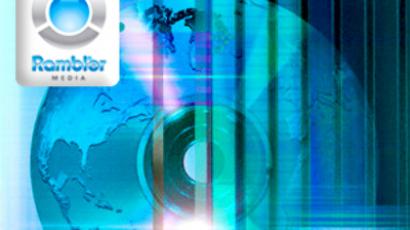Chinese economic model replacing Washington consensus
China’s rate of development on a global scale is moving faster and more consistently the other nations. Should the world take note of the Chinese economic system?
Many Americans and US politicians are blaming China for the recession and for taking American jobs, while others say we should look to chain and immolate their system.
Pepe Escobar, a correspondent for the Asia Times said China is not to blame; instead the US itself is to blame.
“Look at what the Fed is doing. They are printing money like crazy. So, they launched a currency war, a global currency war,” said Escobar. “They are blaming China because the Yuan is undervalued. They will overvalue the Yuan, but at their own pace. It’s going to take three or four years. There is a mechanism inside the Chinese Central Bank.”
Nations like Great Britain choose to cut spending and jobs to rise from a deficit, the US simply prints more money.
“What we are seeing is that the free trade countries, the British and the US are basically basket cases. The Chinese have had the good sense to follow traditional forms of mercantilism, dirigisme and protectionism,” said Webster Tarpley, a journalist.
Tarpley argued that US policy is a form of economic warfare on China, an attempt to export the recession with the objective of undermining the progress and system in China.
“When all currencies were managed under Bretton Woods the world was much better off,” said Tarpley.
Although many have claimed China is deliberately playing by their own set of rules, Escobar argued they are not; emphasizing the fact China is a solid producer and the US is not.
“The major American corporations exported their production lines to China,” Escobar said. “You cannot blame China because they are producing stuff, they are selling their stuff all over the world, and they are investing all over the world with a non intrusive model.”
US model however is intrusive, argued Escobar. The United States tries to export democracy, while China offers other nations infrastructure developments.
It’s time to adopt the Chinese system, argued Tarpley. China utilizes capital controls, boast a large state sector, promote manufacturing and deter financial speculation and services. In addition China invests heavily in infrastructure and technology.
“In effect, it’s the old American model,” Tarpley said.
Much of the world is beginning to shift away from the currently system towards a capital controlled system.
“We are seeing the death agony of globalization,” said Tarply. “If we have a new era of protectionism and dirigisme I think that would be advantageous for the world. Again, Bretton Woods was the best we ever had it.”
“Every developing country, let’s put it this way, is also copying the Chinese model. They want controls on hot money, taxes on financial speculation, it’s trying to more or less organize a casino economy,” added Escobar.
Jim Rogers, the co-founder of the Quantum Fund and author of “The Bull in China” said China has a long history of entrepreneurship and the US is now the largest debtor nation in the history of the world.
Rogers has previously referred to the 19th century as the Century of the UK, the 20th century as the Century of the US and the 21st century as the Century of China. He explained the rise in capitalism has given China the ability to utilize their entrepreneurial spirit.
Blaming China for the world’s economic woes does not fix the problem nor address its root, said Rogers.
“It looks like we have a trade war developing and if we have a trade war developing, that’s the end of the word economy,” said added. “Everybody loses when there’s a trade war.”
He argued that everyone needs to sit down and solve the problem together, although he is skeptical nations will come together and do so. Politics and economics; both are intertwined, which complicates the global market preventing adequate solutions from being used.
China is following the same path America once did; utilizing US economic policies and objectives of the past to achieve growth. Policies put in place by Hamilton and FDR are being employed.
Under the Chinese system savings and investing are up. In the US, neither is on the rise. The US needs to change its tax code to provide people with the right incentives to save and invest their money, argued Rogers.
“Throughout history countries that have saved and invested for the future are the ones that have been successful, so we need to learn to start saving and investing again,” Rogers said. “If we had huge saving and people had incentives to save and invest for the future. Then America could have a comeback. Is it going to happen? I doubt it.”













